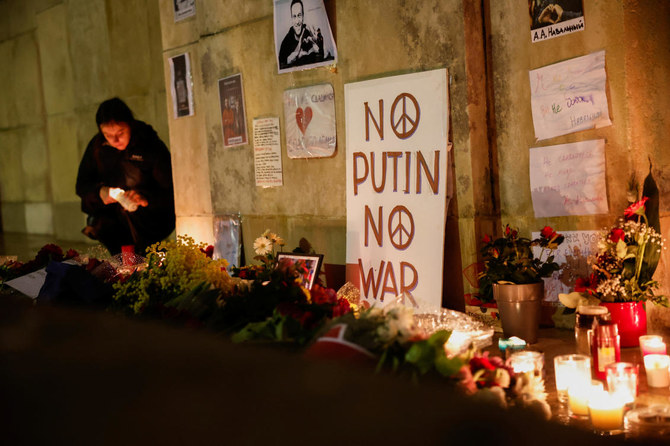
Angela Merkel has condemned as “unjustified” Russia’s expulsion of European diplomats for participating in unauthorised demonstrations in support of the jailed Kremlin critic Alexei Navalny.
“We consider these expulsions to be unjustified. We believe it is yet another aspect that can be observed right now of Russia being quite far from the rule of law,” the German chancellor said on Friday at an online press conference with France’s president, Emmanuel Macron.
Germany’s foreign minister, Heiko Maas, said earlier that the decision by Moscow to declare the diplomats from Poland, Germany and Sweden personae non gratae would “not go unanswered”. Maas said the German diplomat concerned had been “solely fulfilling his duty … of informing himself about developments on the ground by lawful means”.
The British foreign secretary, Dominic Raab, described the expulsion as a “crude attempt” to distract from Russia’s targeting of opposition leaders, saying it was further evidence of Moscow “turning its back on international law”.
Meanwhile, Navalny appeared in a Moscow court for the second time this week, this time on a charge of defaming a second world war veteran. The Russian opposition leader, who earlier this week was ordered to serve two years and eight months in prison, criticised the latest hearing as a “disgusting PR trial” intended by the Kremlin to disparage him.
Last June Russia’s investigative committee launched an investigation into Navalny on charges of defamation, after the politician called people featured in a video promoting constitutional changes that allowed for an extension to Vladimir Putin’s rule “corrupt stooges”, “people without conscience” and “traitors”.
The authorities maintained that Navalny’s comments “denigrate [the] honour and dignity” of a war veteran featured in the video. If convicted, Navalny faces a fine or community service.
“This trial was conceived as some kind of PR trial, because the Kremlin needs headlines, ‘Navalny slandered a veteran’,” the politician said in court on Friday.
Last month Navalny – an anti-corruption investigator and Putin’s most prominent critic – was arrested upon returning from Germany where he had spent five months recovering from a nerve agent poisoning that he blames on the Kremlin. Russian authorities reject the accusations.
On Tuesday a Moscow court found Navalny had violated the probation terms of his suspended sentence from a 2014 money-laundering conviction, and ordered him to serve two years and eight months in prison.
The politician’s arrest and jailing triggered massive protests across Russia, as tens of thousands of people took to the streets to demand his release. Many protesters also chanted slogans against Putin, in the largest show of discontent in years. Thousands of protesters have been detained.
The EU’s top diplomat said on Friday that the bloc’s ties with Russia had reached a new low after the jailing of Navalny, but still raised hopes of cooperation. In Moscow for talks with the Russian foreign minister, Sergei Lavrov, the EU foreign policy chief, Josep Borrell, repeated European calls for Navalny’s release and an investigation into his poisoning.
“Our relationship is indeed in a difficult moment,” Borrell told Lavrov, adding that EU-Russia ties were “under severe strain and the Navalny case is a low point”.
The west has fiercely condemned the decision to jail the 44-year-old, as well as the crackdown on pro-Navalny protesters. Borrell, however, said there were no immediate plans for new European sanctions, and he and Lavrov stressed that the two sides would continue to work together on issues including the coronavirus pandemic.
Borrell’s visit was the first to Russia by a senior EU envoy since 2017, following years of deteriorating relations prompted by Russia’s annexation of Crimea from Ukraine in 2014.
Associated Press and Agence France-Presse contributed to this report












